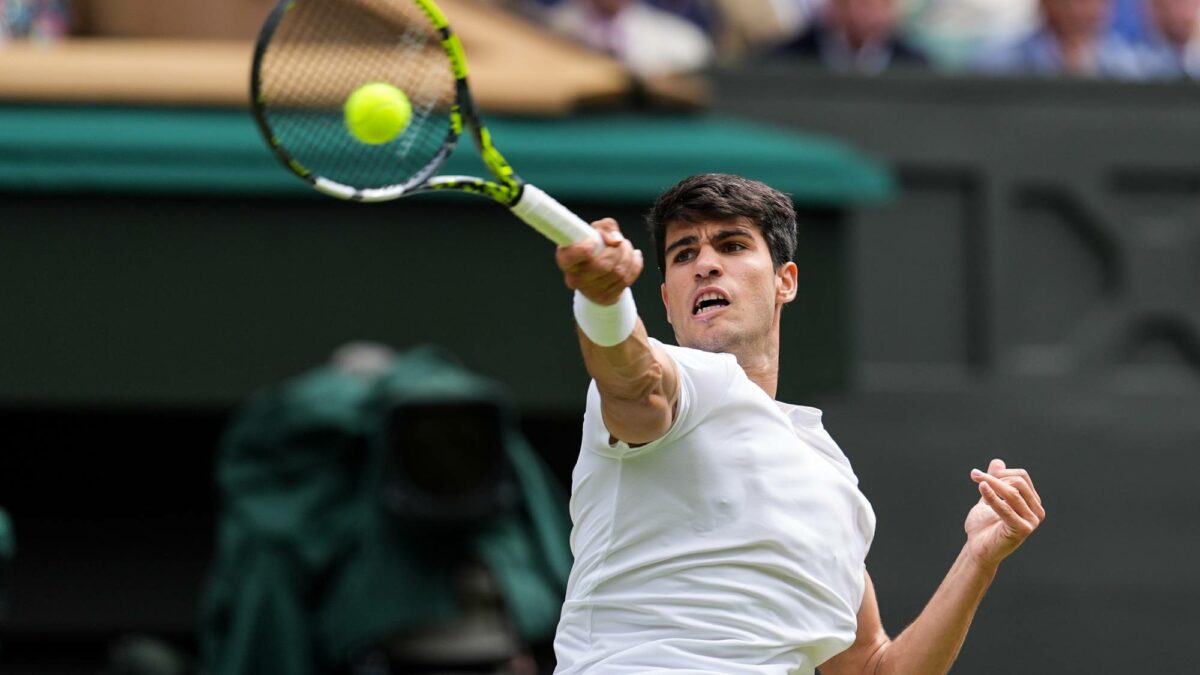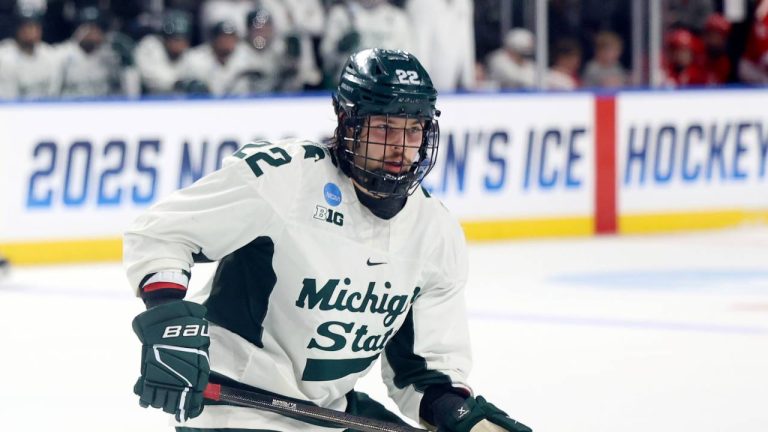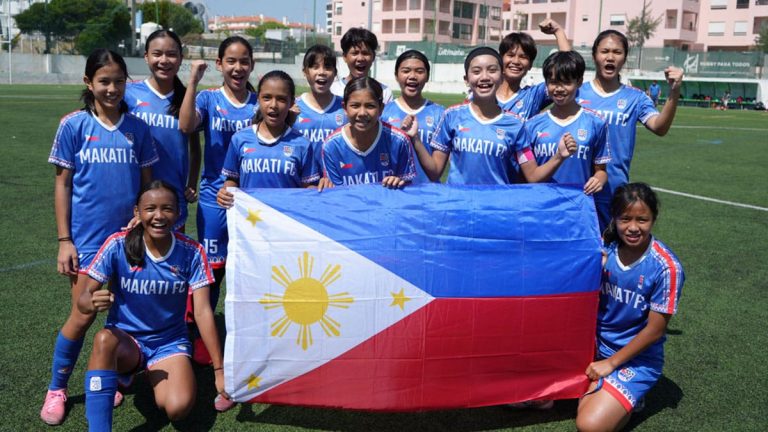Defending Wimbledon champion Carlos Alcaraz has eased into the semi-finals, where he will face fifth seed Taylor Fritz, but mystery surrounds the fitness of his expected challenger in Sunday’s final, Jannik Sinner.
Alcaraz brushed aside the remaining home player, Briton Cameron Norrie, 6-2 6-3 6-3, on the same Centre Court on which less than 24 hours earlier Sinner had escaped when two sets down after Grigor Dimitrov had to retire with a chest muscle injury.
Amid the drama surrounding the Bulgarian on Monday night (local time) it was largely forgotten that Sinner had himself been nursing an injury to his elbow, incurred while breaking a fall, and had taken a medical time-out for it.
On Tuesday morning Sinner, who is due to meet American Ben Shelton in the quarter-final on Wednesday, had an MRI scan, and in the afternoon he cancelled his planned practice session.
There was no official update from Sinner’s camp but his Australian coach Darren Cahill reportedly told ESPN the Italian had a hit indoors for 20 to 30 minutes.
“It was quite an unfortunate fall,” Sinner said on Monday night. “I felt it quite a lot, especially on serve and forehand. We are going to check with MRI to see if there’s something serious, and then we’ll try to adjust it.”
There were no such worries for Alcaraz. He lost the first three points on serve, but prevented Norrie securing the break and never looked back. He took the first set in 28 minutes and the match in 99.
The victory extended his winning streak to 23 matches and his record on grass to 34 wins from 37.
“To be able to play another semi-final here at Wimbledon is really special,” Alcaraz said. “I am really happy with the level I played today against a really difficult player like Cam.”
Fritz’s path to the last four was not as smooth as the Spaniard’s. Russian 17th seed Karen Khachanov won the third set 6-1, the American needed a medical time-out, and there was another technology malfunction with the automated line calls.
“The match was going so well for me for two sets,” he said after taking a fourth set tie-break to wrap up the match 6-3 6-4 1-6 7-6 (7-4).
“I’ve never had a match just flip so quickly, so I’m really happy with how I came back in the fourth set and got it done.
“I felt I couldn’t miss and then all of sudden I’m making a ton of mistakes.
“Momentum was definitely not going to be on my side going into a fifth.”
Fritz said the treatment on his right foot ahead of the fourth set was just a minor matter.
“It’s totally fine, it’s pretty common, a lot of players do this tape job so your foot doesn’t get irritated,” he said.
“I think I ripped it off at some point in the second so I just needed to get it re-done.”
The erroneous line call came soon after when ‘Fault’ was incorrectly called after a Fritz backhand landed well inside the baseline.
It became evident the system was still tracking the initial serve so chair umpire Louise Azemar-Engzell ordered the point be replayed.
The All England Club explained the system had failed to reset because the ball from Fritz’s first serve was still being retrieved when he started lining up his second.
In the women’s draw, Aryna Sabalenka will meet Amanda Anisimova for a place in the women’s singles final at Wimbledon, which was expected when day nine dawned at the Championships.
What was not anticipated was just how hard it would be for both players to reach the last four.
World No.1 and title favourite Sabalenka looked on the cusp of going out against 37-year-old 104-ranked Laura Siegemund when she was 4-3 and a break down in the third set, having also lost the first.
Anisimova, meanwhile, almost threw away what had appeared an unassailable lead against Anastasia Pavlyuchenkova, being forced to save five set points having led 6-1 5-2 before taking her fourth match point. She finally won 6-1 7-6 (11-9).
Sabalenka subsequently reflected that she would probably have lost had she not put herself through a tough self-appraisal after losing the French Open final to Coco Gauff. In that match she made 70 unforced errors, losing after winning the first set, and realised she needed to control her emotions better on court.
It did not look as if she had absorbed the lesson during the first set with her body language portraying her frustration as she struggled to deal with Siegemund’s unusual mix of slices and chops.
“I think there’s a big possibility that I would have lost this match if I didn’t learn that lesson at the French Open,” Sabalenka said after winning 4-6 6-2 6-4 in six minutes short of three hours.
“In some moments I just … kept reminding myself, ‘Come on, it’s the quarter-final of Wimbledon, you cannot give up, you cannot let the emotions just take over you and lose another match’.
“I was just reminding myself that it’s my dream, why would I give up so easily, so I have to keep fighting … I kept telling myself that, and I was willing to win points, to push myself and to get those tough points.”
Anisimova also struggled to control her emotions as 50th-ranked Pavlyuchenkova launched her comeback.
The 34-year-old won three games on the trot, saving two match points in the process, including hitting a gutsy dropshot winner that completely caught the 13th seed by surprise.
Anisimova looked like she was on the verge of breaking down, mouthing to her support group “one more point” as the Russian kept earning set points in the tiebreak.
The 23-year-old American failed to qualify for Wimbledon last year but reached the quarter-final in 2022 and the French Open semi-final, as a 17-year-old, in 2019. In 2023 she took a break from the tour, saying she had been “struggling with my mental health and burnout”.
“It’s been an extraordinary year for me,” she said. “So many highs. It’s just been such a ride, and I’ve been enjoying every step of the way. Even times like today, when you’re not sure you’re going to cross the finish line, I keep reminding myself to enjoy the moment.”
The pair met at Roland Garros, Sabalenka winning 7-5 6-3, but she said of facing Anisimova on grass: “I definitely think this surface suits her game really well. That’s why she’s playing so well so far.”
On Wednesday (local time) the remaining women’s quarter-finals will feature seventh seed Mirra Andreeva vs. Belinda Bencic and eighth seed Iga Swiatek vs. 19th seed Liudmila Samsonova.
© AAP






